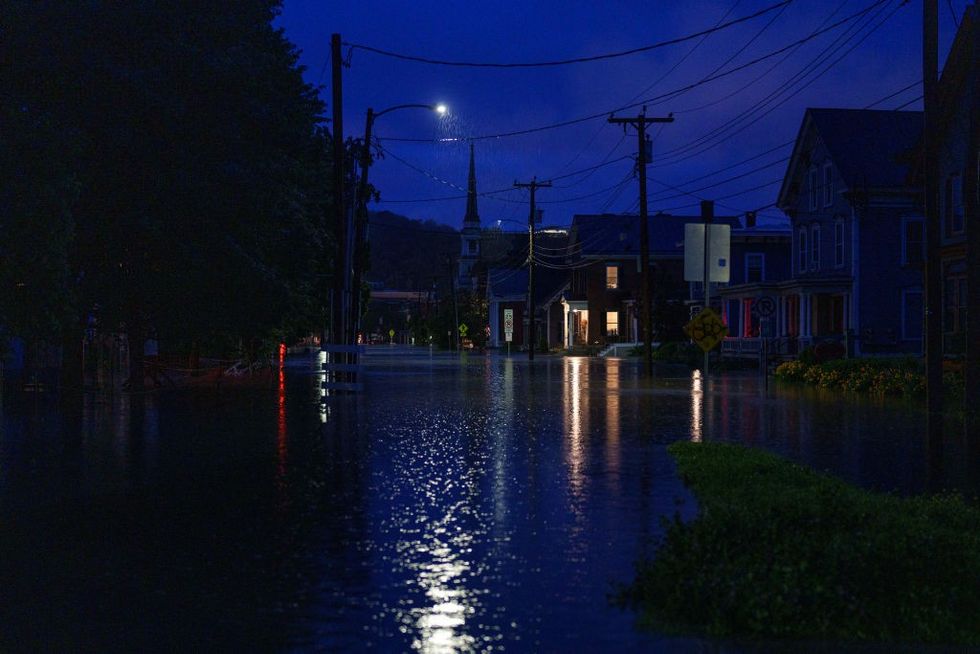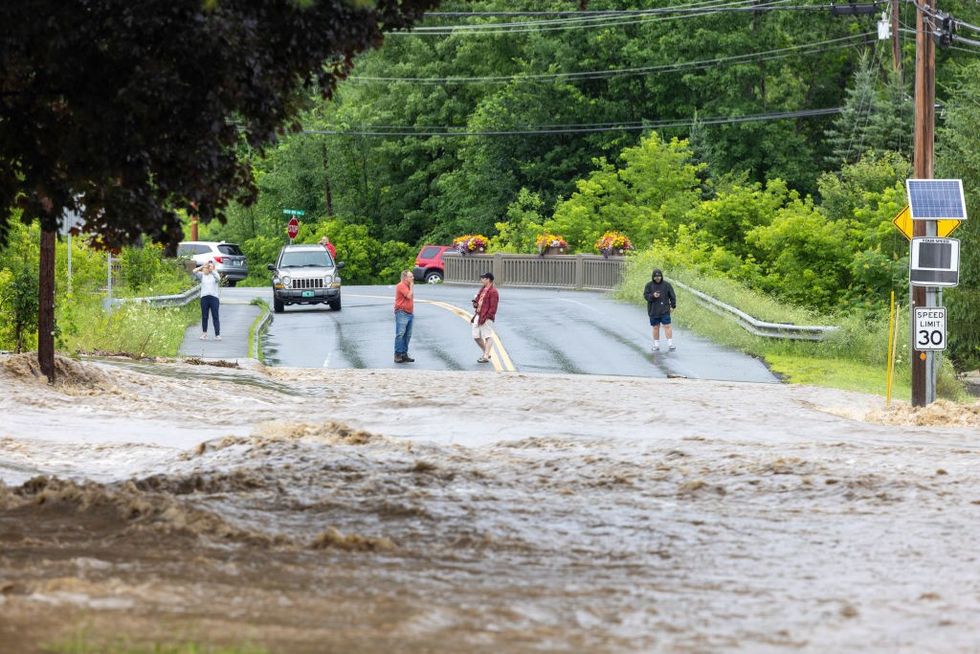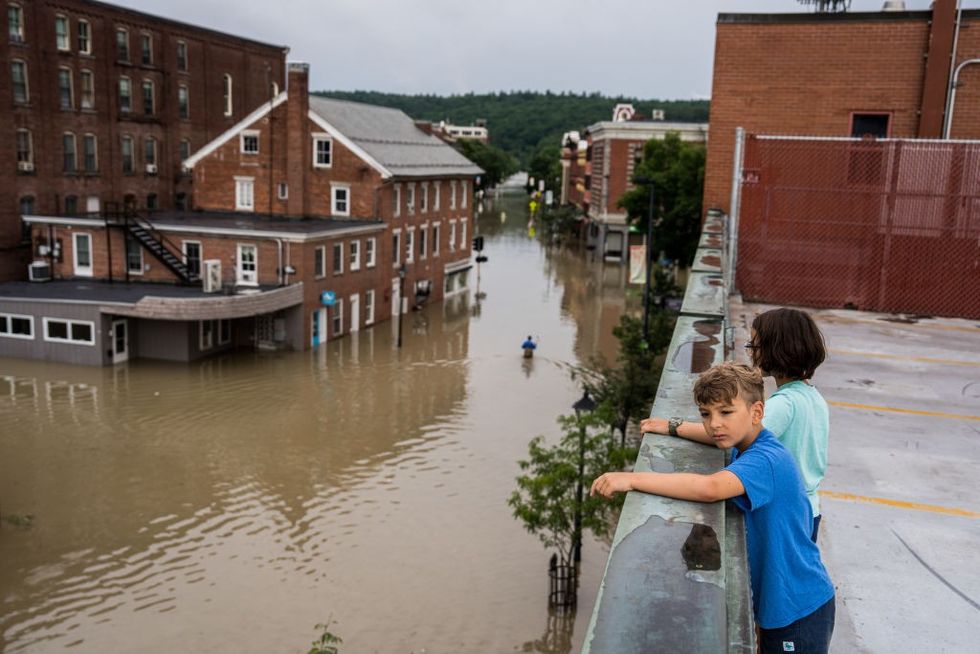May, 06 2010, 02:27pm EDT

For Immediate Release
Contact:
Catherine Kilduff, Center for Biological Diversity, (415) 644-8580
Settlement Will Secure Habitat for Black Abalone Endangered by Climate Change
SAN FRANCISCO
A
court-ordered settlement filed yesterday requires the federal government
to
protect habitat for the endangered black abalone. The agreement results
from a
lawsuit filed by the Center for Biological Diversity challenging the
National
Marine Fisheries Service's failure to designate critical habitat for the
shellfish, which, once common in Southern California
tide pools, has declined by 99 percent since the 1970s.
"Black
abalone is on the cusp of extinction and could be California's first
marine species lost
to global warming," said Catherine Kilduff, a staff attorney at the
Center. "Habitat protections can provide a basis for recovery of the
black abalone, which is a crucial constituent of California's kelp bed
ecosystems."
On
January 14, 2009, in response to a Center petition, black abalone was
listed as
an endangered species under the Endangered Species Act. With that
listing,
federal agencies by law must protect the abalone's critical habitat.
According to the federal government's own data, species with critical
habitat protected under the Endangered Species Act are twice as likely
to be
recovering as those without.
"The
loss of black abalone along the California
coast is a warning: Our oceans are in trouble," said Kilduff.
"Habitat protections are needed to improve the black abalone's
chances for surviving the threats of global warming and ocean
acidification."
While
fishing for black abalone is banned in the state, overfishing initially
depleted the population, and poaching continues to hinder recovery. Now
global
warming is exacerbating the outbreak and spread of a disease called
withering
syndrome that has caused black abalone virtually to disappear from the
Southern
California mainland and many areas of the Channel Islands.
Additionally, ocean acidification poses an increasing threat to the
abalone's growth and reproduction.
Congress
has emphasized the importance of critical habitat under the Endangered
Species
Act by stating that "the ultimate effectiveness of the Endangered
Species
Act will depend on the designation of critical habitat." The National
Marine Fisheries Service must propose critical habitat for black abalone
by
September 20, 2010.
More information on the black abalone is available at
https://www.biologicaldiversity.org/species/invertebrates/black_abalone/index.html
At the Center for Biological Diversity, we believe that the welfare of human beings is deeply linked to nature — to the existence in our world of a vast diversity of wild animals and plants. Because diversity has intrinsic value, and because its loss impoverishes society, we work to secure a future for all species, great and small, hovering on the brink of extinction. We do so through science, law and creative media, with a focus on protecting the lands, waters and climate that species need to survive.
(520) 623-5252LATEST NEWS
'Epic Ocean Victory': Biden Permanently Bans Offshore Drilling Across 625 Million Acres
The authority President Joe Biden used could make it difficult for the incoming Trump administration to reverse the sweeping drilling ban.
Jan 06, 2025
Outgoing President Joe Biden on Monday moved to permanently ban offshore oil and gas drilling across more than 625 million acres of U.S. coastal territory, protecting swaths of the East Coast, the eastern Gulf of Mexico, the Pacific, and Alaska's Northern Bering Sea from fossil fuel exploitation just before President-elect Donald Trump is set to retake power.
Biden said in a statement that his decision "reflects what coastal communities, businesses, and beachgoers have known for a long time: that drilling off these coasts could cause irreversible damage to places we hold dear and is unnecessary to meet our nation's energy needs."
Invoking the 2010 Deepwater Horizon oil spill—the largest in U.S. history—Biden said future drilling off the coasts he's seeking to protect "is not worth the risks." Recent polling indicates that a majority of the American public agrees: 64% support action to shield U.S. coastlines from new offshore drilling, according to a 2024 survey conducted by Ipsos on behalf of the advocacy group Oceana.
"As the climate crisis continues to threaten communities across the country and we are transitioning to a clean energy economy," the president said Monday, "now is the time to protect these coasts for our children and grandchildren."
Biden's move comes just two weeks before Trump, a fervent champion of fossil fuel drilling, is set to be sworn in as the nation's 47th president. During his first term in office, Trump moved to expand offshore drilling to nearly all U.S. coastal waters before temporarily banning drilling off the coasts of Florida, Georgia, and South Carolina in 2020.
The far-right Project 2025 agenda crafted by members of Trump's first administration calls for a major increase in offshore fossil fuel drilling.
"Our treasured coastal communities are now safeguarded for future generations."
While Trump and his proposed Cabinet—which is stacked with allies of the oil and gas industry—are expected to aggressively roll back climate protections put in place by the Biden administration, the outgoing president's new executive action could have staying power.
In a fact sheet, the White House said Biden is using his authority under Section 12(a) of the Outer Continental Shelf Lands Act to "protect all U.S. Outer Continental Shelf areas off the East and West coasts, the eastern Gulf of Mexico, and additional portions of the Northern Bering Sea in Alaska from future oil and natural gas leasing." The withdrawals, according to the White House, "have no expiration date, and prohibit all future oil and natural gas leasing in the areas withdrawn."
As The Washington Postobserved, "A federal judge ruled in 2019 that such withdrawals cannot be undone without an act of Congress."
"Sen. Mike Lee (R-Utah), the new chairman of the Senate Energy and Natural Resources Committee, suggested that he would seek to overturn the decision using the Congressional Review Act, which allows lawmakers to nullify an executive action within 60 days of enactment with a simple majority vote," the Post added.
A spokesperson for Trump's transition team called Biden's action "disgraceful," adding, "Rest assured, Joe Biden will fail, and we will drill, baby, drill."
Predictably, the fossil fuel lobby also denounced Biden's executive action and implored lawmakers to "use every tool at their disposal to reverse this politically motivated decision."
While Biden has faced criticism from environmentalists throughout his four-year term for approving drilling permits in the face of intensifying climate chaos in the U.S. and around the world, advocates celebrated the president's latest executive action as a critical win.
"This is an epic ocean victory!" said Joseph Gordon, campaign director at Oceana. "Thank you, President Biden, for listening to the voices from coastal communities and contributing to the bipartisan tradition of protecting our coasts."
"Our coastlines are home to millions of Americans and support billions of dollars of economic activity that depend on a clean coast, abundant wildlife, and thriving fisheries," Gordon added. "Our treasured coastal communities are now safeguarded for future generations."
Keep ReadingShow Less
Vermont Sued for New Law Requiring Big Oil to Pay for Climate Damage
'For too long, giant fossil fuel companies have knowingly lit the match of climate disruption'
Jan 05, 2025
The US Chamber of Commerce and the American Petroleum Institute - representing the biggest fossil fuel companies in the world - are suing the State of Vermont over its new law requiring fossil fuel companies to pay a share of the state's damage caused by climate change.
The lawsuit, filed last Monday in the US District Court for the District of Vermont, asks a state court to prevent Vermont from enforcing the law passed last year. Vermont became the first state in the country to enact the law after it suffered over $1 billion in damages from catastrophic summer flooding and other extreme weather.
Vermont’s Attorney General’s Office said as of Friday, Jan. 3, they had not been served with the lawsuit.
The lawsuit argues that the U.S. Constitution precludes the act and that the federal Clean Air Act preempts state law. It also claims that the law violates domestic and foreign commerce clauses by discriminating “against the important interest of other states by targeting large energy companies located outside of Vermont.”
The Chamber and the American Petroleum Institute argue that the federal government is already addressing climate change. Because greenhouse gases come from billions of individual sources, they claim it has been impossible to measure “accurately and fairly” the impact of emissions from a particular entity in a specific location over decades.
“For too long, giant fossil fuel companies have knowingly lit the match of climate disruption without being required to do a thing to put out the fire,” Paul Burns, executive director of the Vermont Public Interest Research Group, said in a statement. “Finally, maybe for the first time anywhere, Vermont is going to hold the companies most responsible for climate-driven floods, fires and heat waves financially accountable for a fair share of the damages they’ve caused.”
The complaint is an essential legal test as more states consider holding fossil fuels liable for expensive global warming-intensified events like floods, fires, and more. Maryland and Massachusetts are among the states expected to pursue similar legislation, modeled after the federal law known as Superfund, in 2025.
New York Gov. Kathy Hochul (D) signed a similar climate bill into law - the Climate Change Superfund Act- on Dec. 26, pointing to the need to fund climate adaptation projects.



Keep ReadingShow Less
Renowned Washington Post Cartoonist Quits After Refusal to Publish Critique of Jeff Bezos
Jan 04, 2025
Pulitzer Prize-winning cartoonist Ann Telnaes has resigned from the Washington Post, where she has worked since 2008, due to what she claims was editorial interference.
Telnaes claimed an editor at the paper killed her draft cartoon depicting Washington Post owner Jeff Bezos and other billionaire tech and media chief executives groveling on their knees at the feet of President-elect Donald Trump.
Along with Bezos, Telnaes depicted Meta founder Mark Zuckerberg and OpenAI CEO Sam Altman bringing Trump sacks of cash. Los Angeles Times owner and billionaire Patrick Soon-Shiong was shown with a tube of lipstick.
In a post to her Substack, Telnaes wrote:
“I have had editorial feedback and productive conversations – and some differences – about cartoons I have submitted for publication, but in all that time, I’ve never had a cartoon killed because of who or what I chose to aim my pen at. Until now.”
"As an editorial cartoonist, my job is to hold powerful people and institutions accountable. For the first time, my editor prevented me from doing that critical job. So I have decided to leave the Post. I doubt my decision will cause much of a stir and that it will be dismissed because I’m just a cartoonist. But I will not stop holding truth to power through my cartooning because, as they say, “Democracy dies in darkness.”
Over three hundred thousand people canceled their digital subscriptions after Jeff Bezos decided to squash a Washington Post endorsement of Kamala Harris in October.
Keep ReadingShow Less
Most Popular


